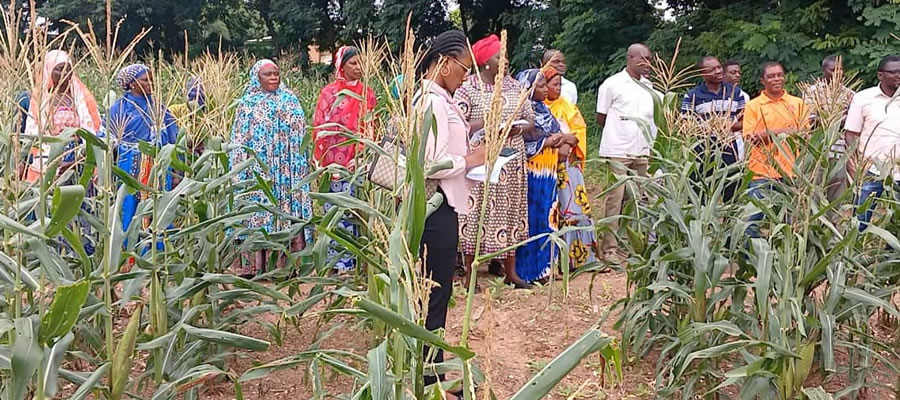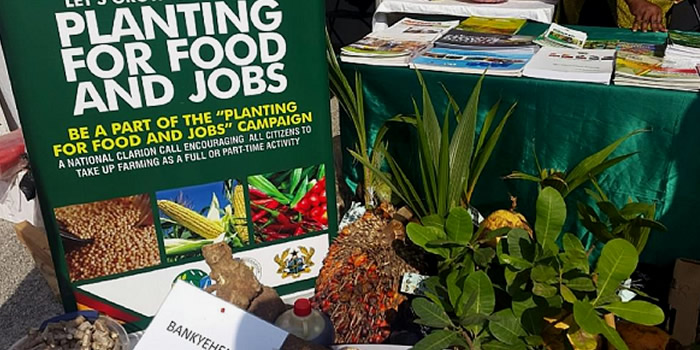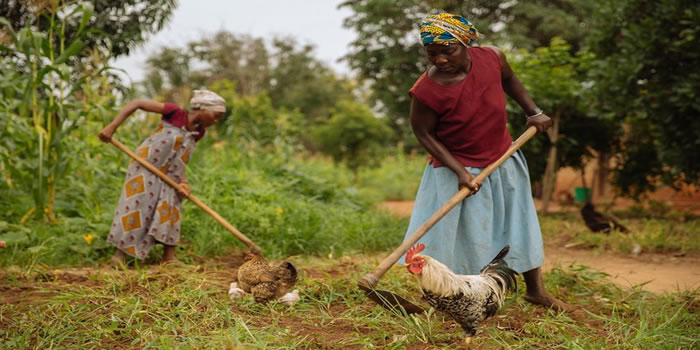

AGRICULTURE
Upper West registered 117,300 farmers under PFJs during 2018 crop season
About 117,300 farmers in Upper West Region registered under the Planting for Food and Jobs (PFJ) programme for the 2018 second crop season, according to the Regional Director of Agriculture, Mr Emmanuel Sasu Yeboah.

Date Created : 1/28/2019 3:07:46 AM : Story Author : GNA
The farmers cultivated about 245,000 acres of land with the yield per hector of estimated at four metric tons, a significant improvement over last season which registered about 29,400 farmers who cultivated 52,000 acres of land with yield per hector pegged at 2.4 metric tons.
The regional department of agriculture is coordinating with the District Directors of Agriculture to achieve their target of reaching out to 200,000 farmers next season with each farmer projected to cultivate one hector of land.
“When I was coming to the region, I heard that there was so much hunger but with the adoption of PFJ programme, I have not seen or heard of anyone complaining about hunger,” Mr Yehoah said during a visit to some communities in the region.
Alhaji Abdulai Antiku, the Managing Director of Antika Company Limited, a private seed processing company based in Wa, appealed to government to support farmers with warehouses and farm equipment such as tractors and harvesters to improve crop production.
He also urged government to support farmers to go into irrigation farming by making water accessible through the Black Volta to enhance an all-year-round farming in the region.
The Upper West Regional Minister, Alhaji Sulemana Alhassan, gave the assurance that the Company that he would lobby appropriate quarters to extend a hand of cooperation to private companies to build more warehouses for the PFJ Project.
He said government has directed the Northern Development Authority (NDA) to support the Ministry of Food and Agriculture with tractors and other farm equipment which would be imported next year.
He said about eight districts in the region are covered by the Black Volta and that experts have already visited the region to take feasibility studies on how to tap water from the Black Volta and make it accessible for farmers.
“We need to cooperate with government in realizing its objective of Ghana beyond Aid” he said.
The PFJs programme launched in April 2017 sought to address the problem of migration of the youth to city centres in search of
non-existent jobs and also halt the importation of food stuffs from neighbouring countries.
The programme is anchored on five pillars: provision of improved seeds, the supply of fertilizers, the provision of dedicated extension services, a marketing strategy and the use of e-Agriculture - that aim to transform the Ghana’s agriculture.
It is expected to increase maize production by 30 per cent; rice by 49 per cent; soybean by 25 per cent; and sorghum by 28 per cent and create 750,000 jobs.








 facebook
facebook
 X
X
 Youtube
Youtube
 instagram
instagram
 +233 593 831 280
+233 593 831 280 0800 430 430
0800 430 430 GPS: GE-231-4383
GPS: GE-231-4383 info@ghanadistricts.com
info@ghanadistricts.com Box GP1044, Accra, Ghana
Box GP1044, Accra, Ghana